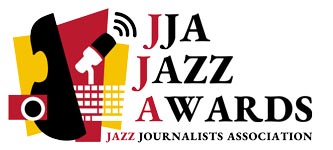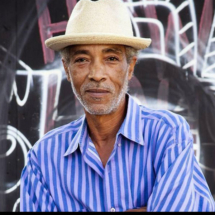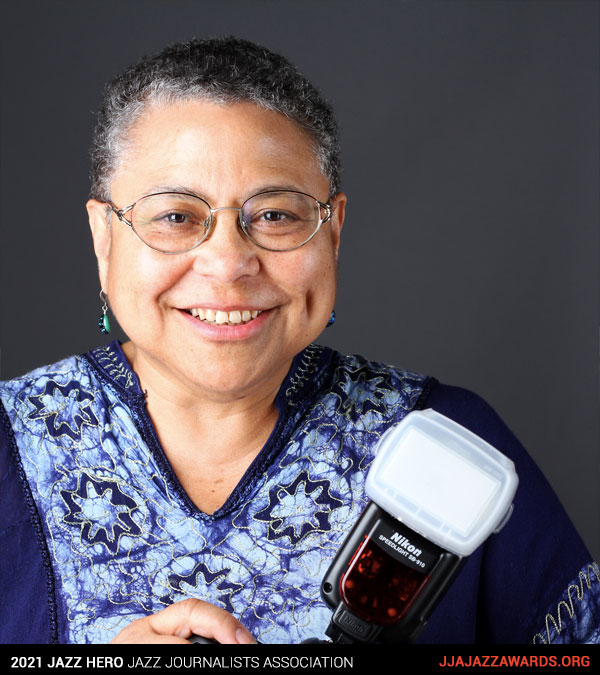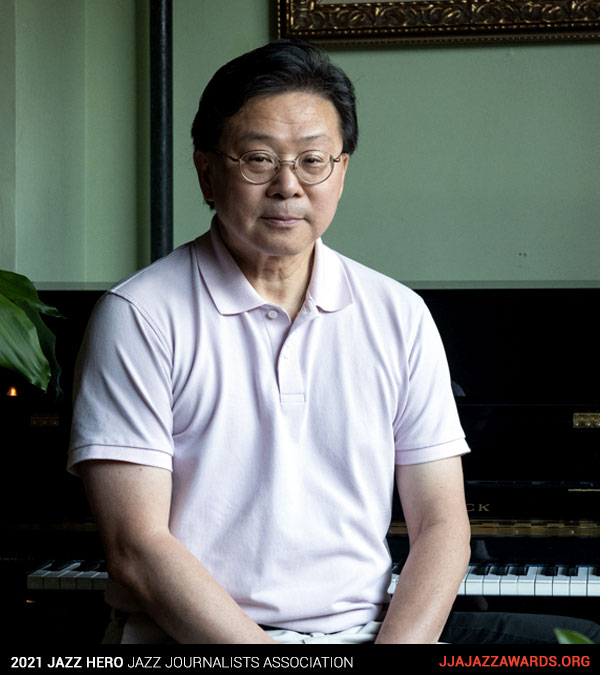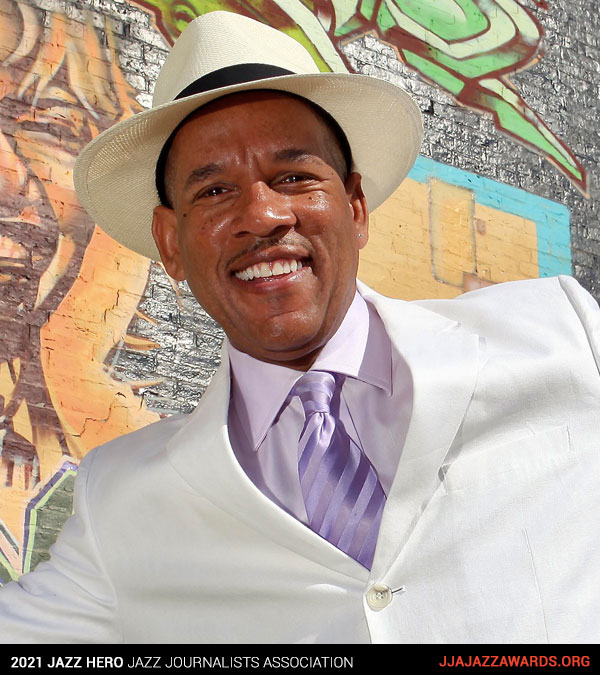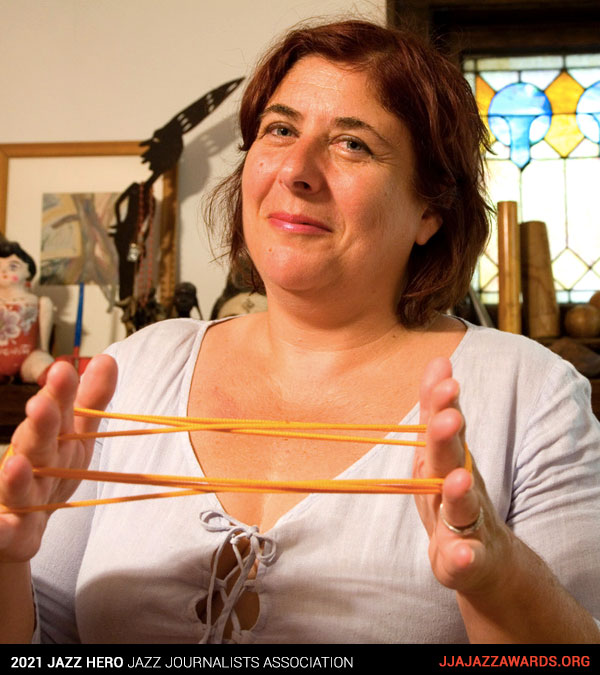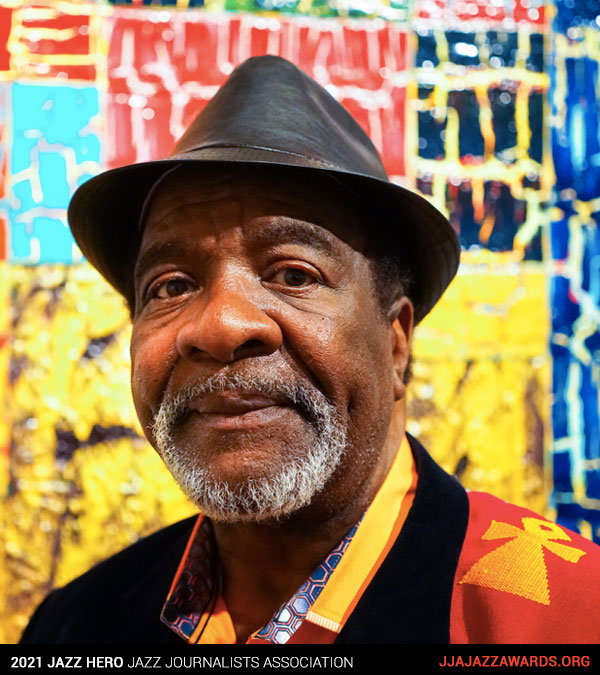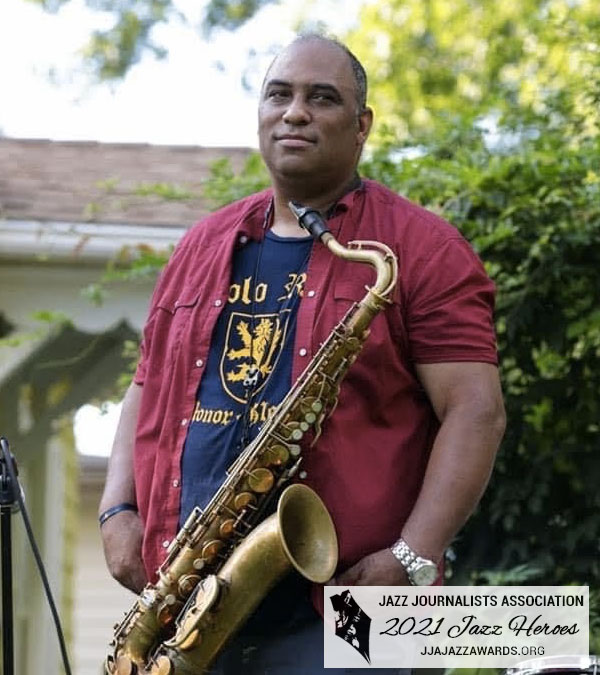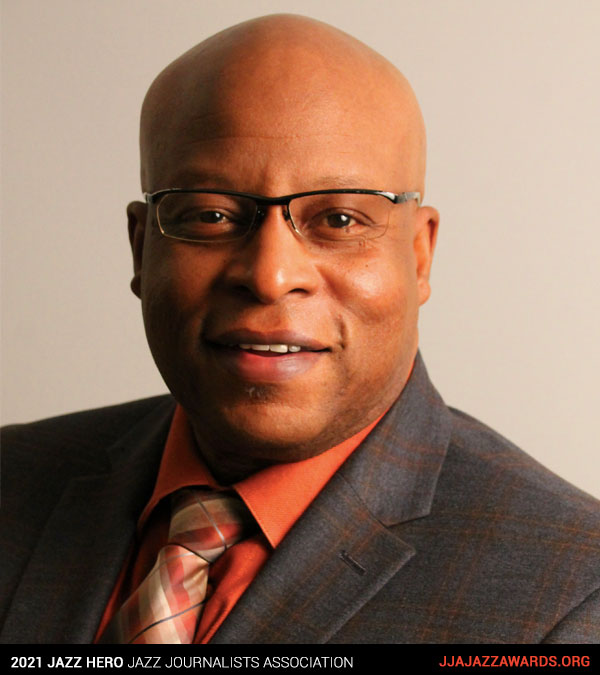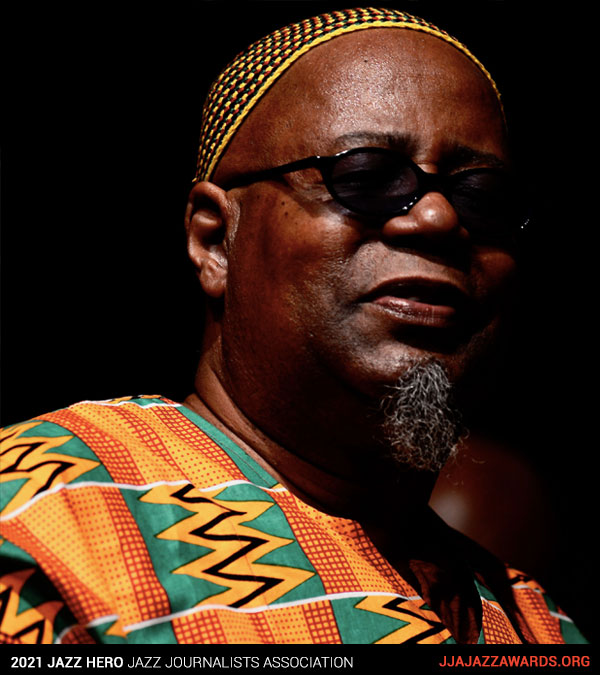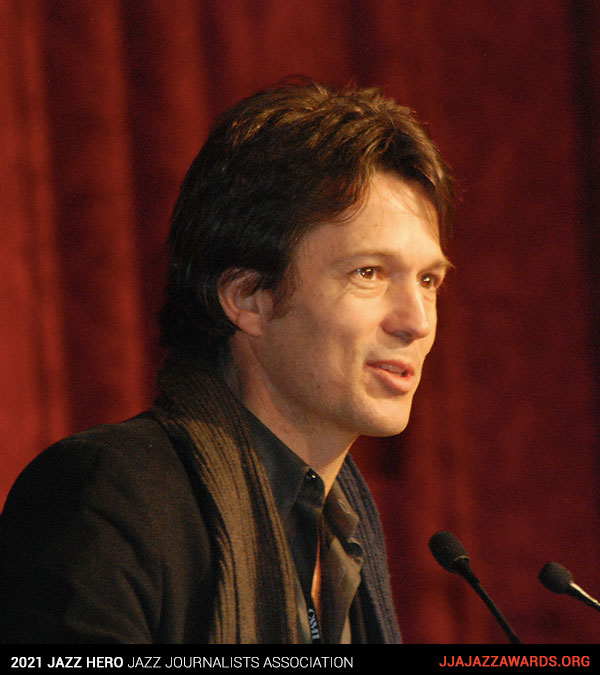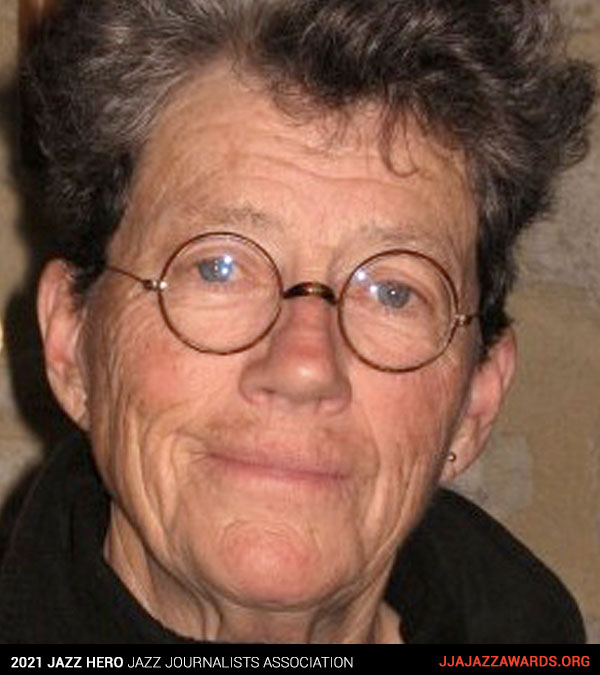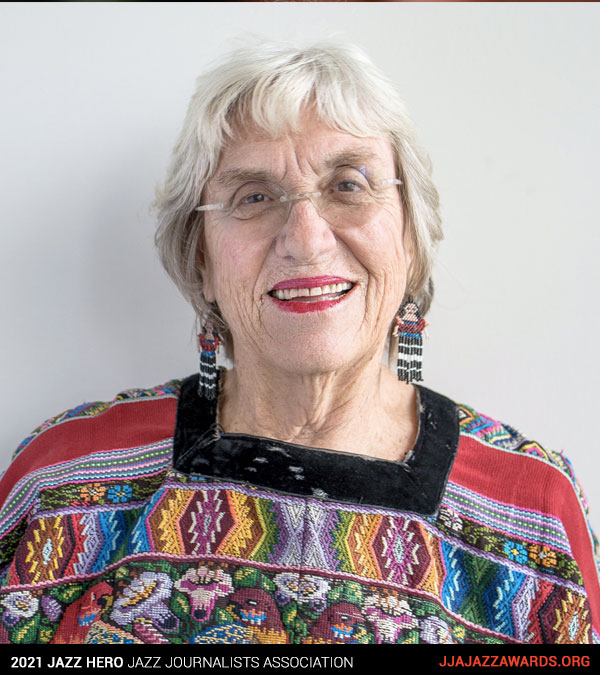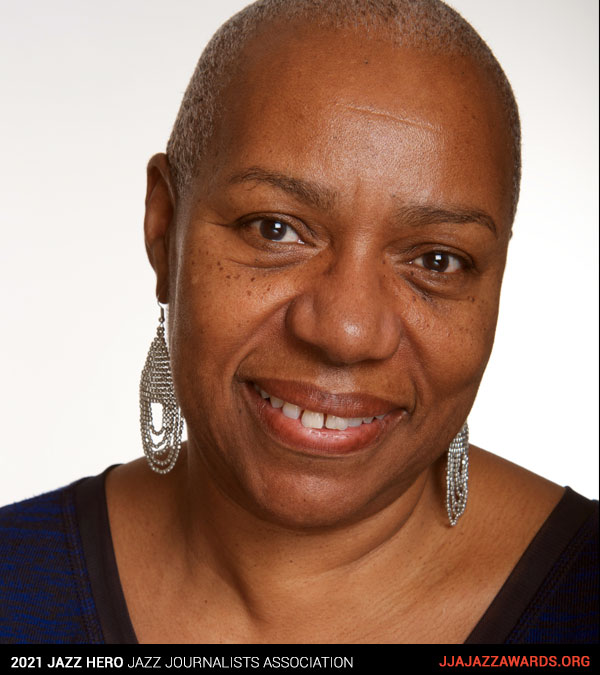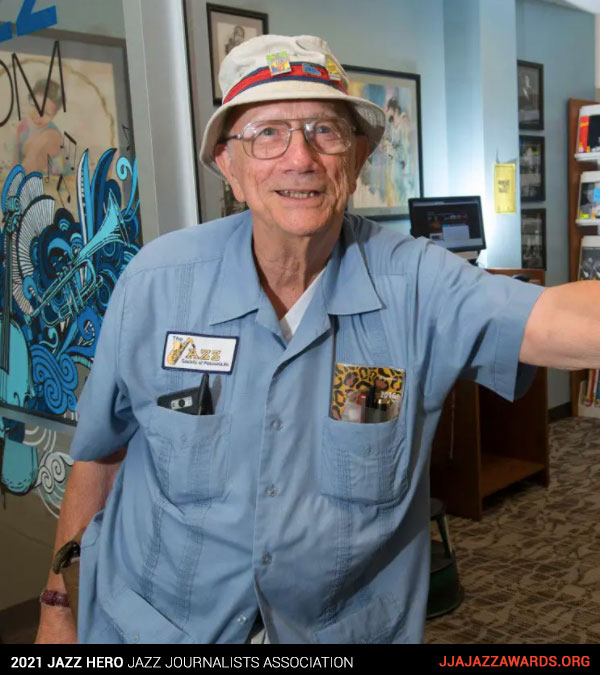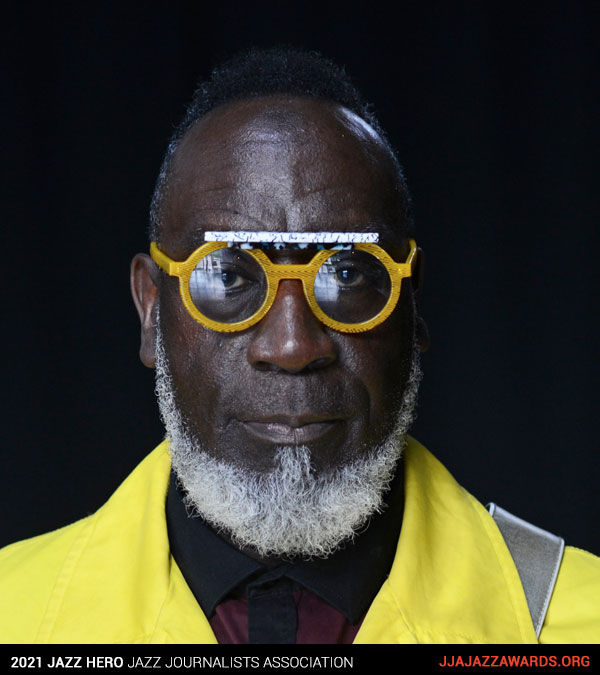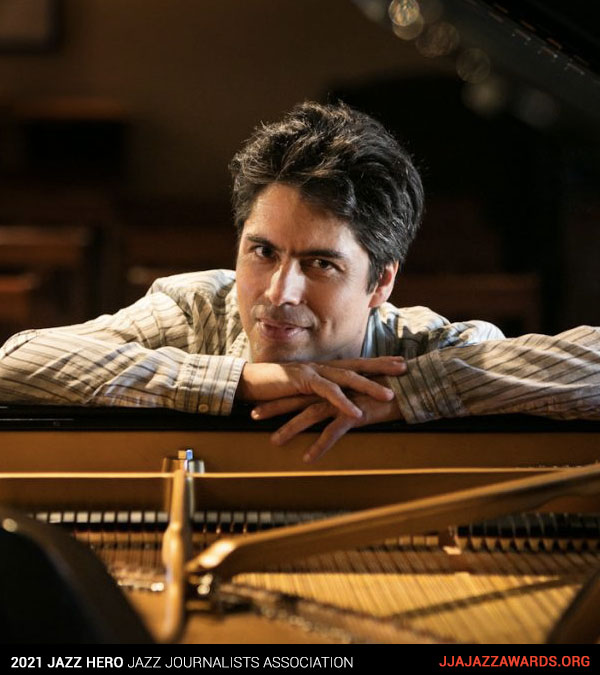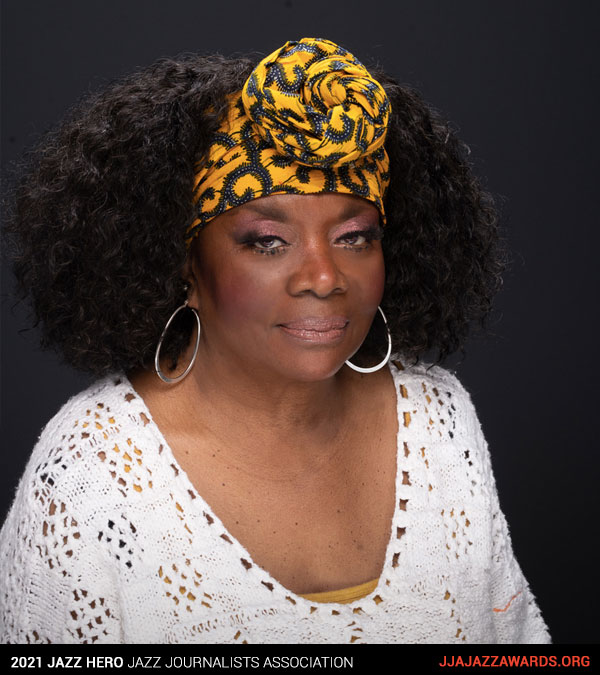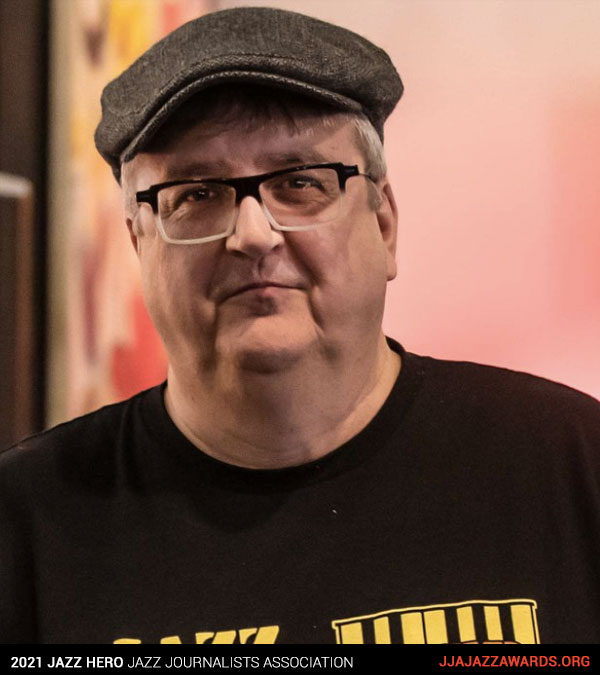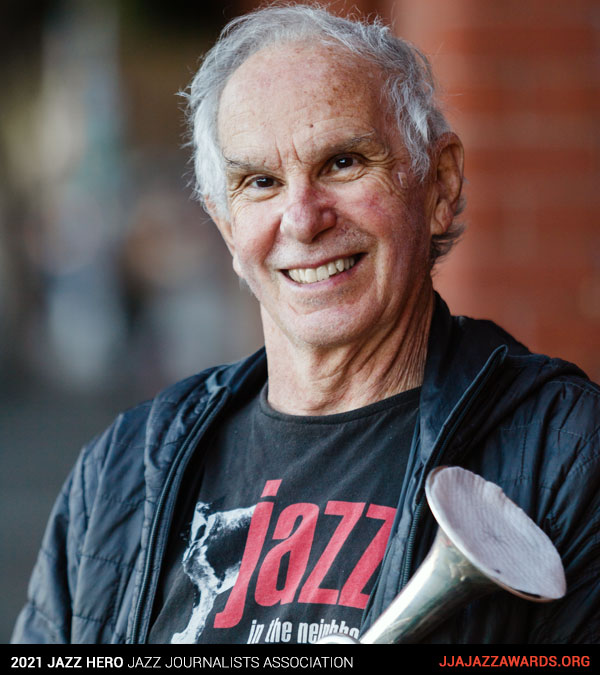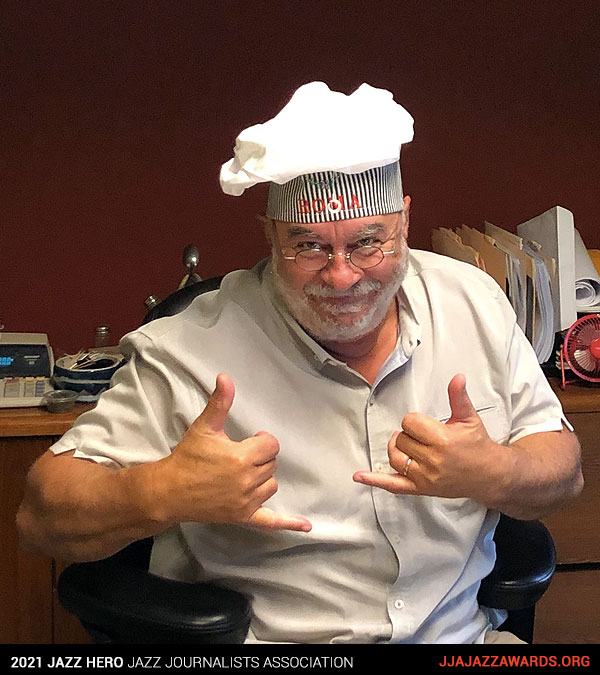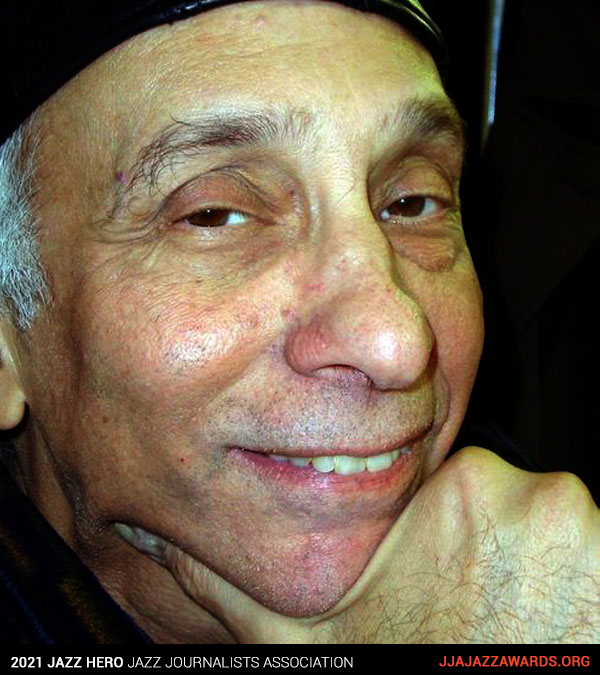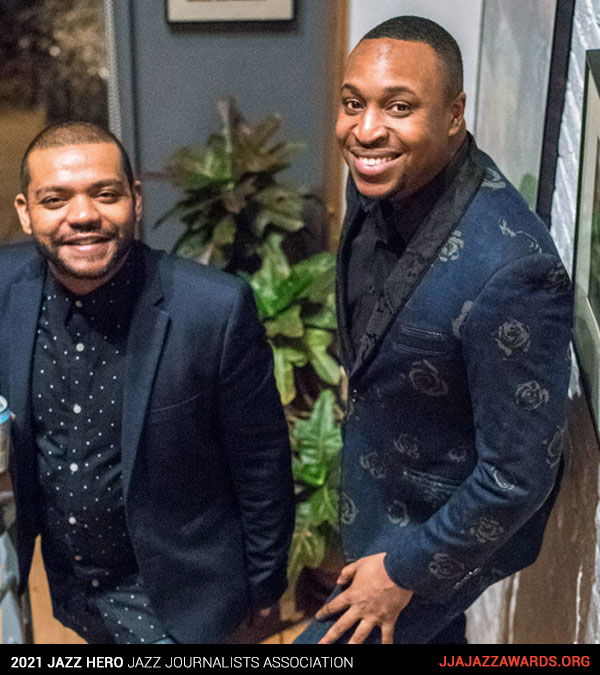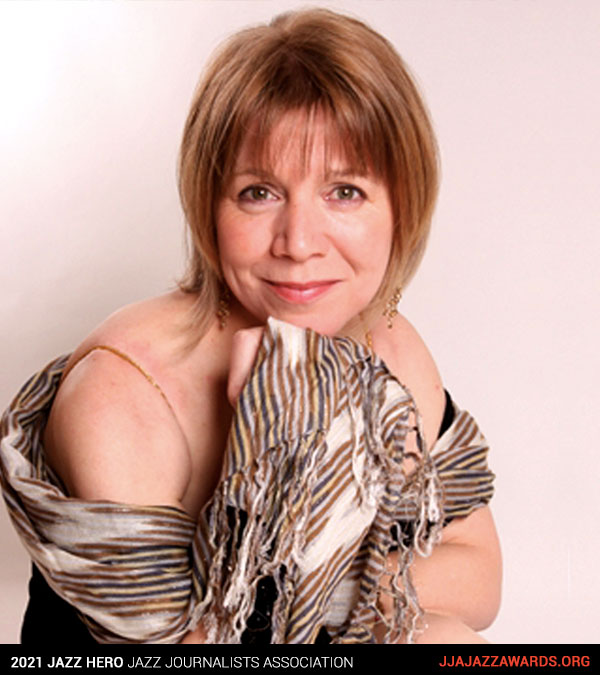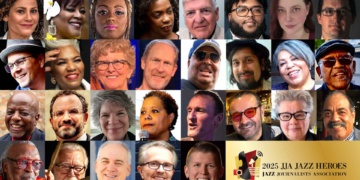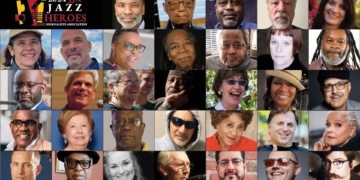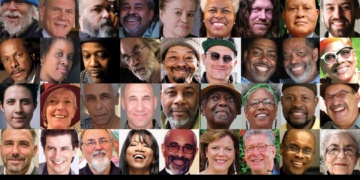The Jazz Journalists Association is pleased to announce its slate of 2021 Jazz Heroes, advocates who have had significant impact in their local communities. The ‘Jazz Hero’ awards, made annually on the basis of nominations from community members, are presented by their local fans and friends in conjunction with the JJA’s annual Jazz Awards honoring significant achievements in jazz music and journalism. Please spread the word of Jazz Heroes and the photo collage designed for easy sharing on your own social media posts.
SUSAN J. ROSS
2021 ATLANTA JAZZ HERO
Georgia
By J. Scott Fugate
If you see Susan J. Ross photographing an event, you can be assured you’re in the best place at the right time for an amazing Atlanta experience. Known throughout the city as the “PhotoGriot,” Sue (as she likes to be called) has been documenting the cultural, political, social, musical and ultimately personal stories of our area for the past 40 years…
HENRY WONG
2021 BALTIMORE JAZZ HERO
Maryland
By Don Palmer
Baltimore’s 2021 JJA Jazz Hero Henry Wong is a native of Hong Kong, who has lived in the U.S. since attending high school at St. John’s Preparatory School in Minnesota. He went to Pennsylvania State University as a biology major and worked in a neurology lab at Johns Hopkins School of Medicine until 1990, when his muse led him astray — or so it may have seemed until he launched one of the most robust online responses to Covid-19 lockdowns with concerts webcast under the moniker An die Musik Live…
JOSÉ MASSÓ
2021 BOSTON JAZZ HERO
Massachussetts
By Bob Blumenthal
Photo by Angela Rowlings
For nearly half a century, José Massó has been a multi-directional Jazz Hero in the Greater Boston community. Through his WBUR-FM program Con Salsa, he has introduced the area’s jazz community to the riches of Afro-Latin music while giving his Spanish-speaking listeners insight into how jazz has cross-pollinated with their own traditional culture…
MARGUERITE HORBERG
2021 CHICAGO JAZZ HERO
Illinois
By Michael Jackson
Photo by Marc PoKempner
Marguerite Horberg, who in the year of COVID has gained some wide renown as the force behind the independent, collaboratively created, border-crossing HotHouseGlobal webcasts on Twitch.TV, is steeped in and energized by jazz, experimental and progressive music. She has been intent on discovering, supporting, enabling and exposing more music from more places to more people, in town and out, from her career beginnings as a cocktail waitress at Joe Segal’s Jazz Showcase to the helming of her first official club, HotHouse, at an address in Chicago’s now-fashionable, then insalubrious Wicker Park neighborhood in 1991, to this very day…
WENDELL HARRISON
2021 DETROIT JAZZ HERO
Michigan
By W. Kim Heron
Photo by Noah Elliot Morrison
After a decade mostly in New York City and on the road, sharing bandstands and jam spaces with everyone from Sonny Rollins to Grant Green, Sun Ra to Hank Crawford, Wendell Harrison, late in his twenties around 1970, flopped back into Detroit, to his mother’s house. He thought it would be a quick, catch-your-breath layover…
ROB DIXON
2021 INDIANAPOLIS JAZZ HERO
Indiana
By Leslie Lynnton Fuller
Photo by Mark Sheldon
Going into the pandemic year, Indianapolis-based saxophonist Rob Dixon was enjoying the varied routine of a successful jazz musician, teaching courses at IUPUI (our urban research center, offering degrees from both Indiana and Purdue universities) and area high schools, playing with his band Triology at the Chatterbox and Mousetrap, making frequent recording sessions as a sought after sideman…
GERALD D. DUNN
2021 KANSAS CITY JAZZ HERO
Missouri
By Kevin Morris
Gerald D. Dunn, known as the Jazz Disciple, has spent his life devoted to music and the advancement of culture through the art — including actively sustaining connections to the Kansas City jazz community’s artists even when the stage lights are not shining. An accomplished musician, recorded on several albums playing tenor sax and other woodwinds, for over 20 years he has served as the Director of Entertainment of Kansas City’s American Jazz Museum and General Manager of the Blue Room, voted by DownBeat one of the Top 100 jazz listening rooms on the planet since 2003…
DWIGHT TRIBLE
2021 LOS ANGELES JAZZ HERO
California
By Howard Mandel and Thomas Paige
Dwight Trible isn’t content to use his music just to entertain people. He intends his music to bring us together, to bridge the gap between the races and to heal the human heart, goals he also pursues as executive director of The World Stage…
PHILIP BITHER
2021 MINNEAPOLIS-ST. PAUL JAZZ HERO
Minnesota
By Pamela Espeland
Some of the best, freshest, most provocative and inspiring jazz heard in Minneapolis and St. Paul, Minnesota, is presented by the Walker Art Center. This has been true since 1997, when Philip Bither became the Walker’s senior curator of performing arts. The pandemic hit pause on 2020-21, but as we anticipate restrictions being lifted, we look forward to the return of music to the Walker, with Philip as our guide…
MJ WILLIAMS
2021 MONTANA JAZZ HERO
By Susan Brink, 2020 JJA Jazz Hero New York State Capital Region
Vocalist, composer and trombonist MJ Williams is a fourth generation Montanan, second-generation trombonist, and bandleader Don Williams’ daughter, so clearly she came by her passion for jazz naturally, and early. For half a century it’s carried her around the world — to study and play in New York and Seattle, as well as regularly at the jazz clubs Le Sept Lezard and Atelier de la Main d’Or in Paris, France. Everything she’s absorbed through those experiences she’s brought home to Montana…
NANCY OCHSENSCHLAGER
2021 NEW ORLEANS JAZZ HERO
Louisiana
By Marc PoKempner
Nancy Ochsenschlager wants to turn the world on to this great thing she discovered: New Orleans! She can’t wait to show you around! She goes everywhere, participates in everything, experiences the highs and endures the lows of her adored adopted city, wants you to know the people and the music and the food and art as she does. She’ll walk down the street and see kids tap-dancing for tips, and she’ll recognize them, or at least know which of their uncles plays in which brass band…
GAIL BOYD
2020 NEW YORK CITY JAZZ HERO
New York
By Carolyn McClair
Three decades ago, I was looking for an attorney to help set up my company. I heard the same recommendation over and over: Gail Boyd. Turns out she was a founding partner in Boyd, Staton & Cave, the first African-American female law firm in New York City. I immediately made an appointment and not only was my business launched but I made a trusted friend for life. That’s Gail. More than a lawyer or manager, she’s a partner, a confidant, a guide — family, really — to everyone she represents or has touched through her Facebook group “Alternative Venues In Jazz,” including tons of New Yorkers…
F. NORMAN VICKERS
2021 PENSACOLA JAZZ HERO
Florida
Adapted from an appreciation by Lew Shaw (JJA 2017 Phoenix Jazz Hero), published in The Syncopated Times
F. Norman Vickers is a harmonica-playing physician who for the past 40 years has been the jazz ambassador and moving spirit behind Jazz Pensacola, the Gulf Coast music society meant to “provide a social forum for jazz performance, education and enjoyment for listeners and musicians.” That has long been his personal goal, and he’s fulfilled it in many ways…
JAMAALADEEN TACUMA
2021 PHILADELPHIA JAZZ HERO
Pennsylvania
By John Szwed
It’s the rarest of musicians who fulfill their potential while remaining in their hometowns. But Jamaaladeen Tacuma is an exemplar for how to turn what could be a liability — rootedness — into success. How he’s done it: First, there’s the world class musicianship of a bassist who at age 19 joined Ornette Coleman’s challenging, electrically charged groups and stayed with them for 11 years…
RANDY PORTER
2021 PORTLAND JAZZ HERO
Oregon
By Lynn Darroch and Rick Mitchell
In mid-March 2020, night clubs in Portland and other Oregon cities and towns closed for what was initially predicted to be just long enough to “flatten the curve.” By June it was obvious that the Covid-19 pandemic was not going away anytime soon, not until a vaccine or vaccines could be developed and made widely available to the public, not until the end of the year at the earliest. This was when pianist Randy Porter launched his Sundays @ 7 Concert Series, which continues to this day . . .
GREER SMITH
2021 POUGHKEEPSIE JAZZ HERO
New York
By Ron Scott
Greer Smith is founder and president of TRANSART & Cultural Services, Inc., an organization with a mission reflecting her commitment to promote an understanding and appreciation of the culture, history and arts of the African Diaspora. Her talents run deep and have been applied to arts management and programming, fundraising, program development, producing and organizing various media. But her entire career has been founded on the premise of service to community and belief in life-long learning. She has always played these fundamentals out over a soundtrack of jazz.
GREGORY BELL
2021 ROCHESTER JAZZ HERO
New York
By Derrick Lucas
By day he is a legal editor for Thomson-Reuters, the international media conglomerate. At nightfall Gregory Bell lights a cigar and becomes a Rochester Jazz Hero. Since 2005, he has been the beacon of light for western New York jazz, his website JazzRochester the main source and go-to spot for all of the numerous events that occur in our area that would go unnoticed if it were not for his painstaking search for details of each show in a 100-mile radius…
MARIO GUARNERI
2021 SAN FRANCISCO BAY AREA JAZZ HERO
California
By Andrew Gilbert
Mario Guarneri, founder of Jazz in the Neighborhood, was born and raised in the San Francisco Bay Area of California. He started trumpet lessons at the age eight with Eddie Smith, of Earl “Fatha” Hines’ band, a mentor he says “put me on the path to being a musician who plays trumpet.” Mario defines his career as “musician” to involve more than simply making sounds, though he’s done that prolifically and prodigiously in symphony orchestras, circus bands and jazz groups since he joined the Musicians Union when he was 13 (the same year he sat in with Louis Armstrong at a concert in Berkeley)…
JOHN DIMITRIOU
2021 SEATTLE JAZZ HERO
Washington
By Paul de Barros
When the pandemic struck back in March 2020, Seattle’s Jazz Alley, like every other restaurant and bar in the state of Washington, closed for performances. But owner John Dimitriou saw no reason why his spacious, state-of-the-art kitchen could not be put to good use. Working with local social service agencies such as the Northwest Food Alliance and the Seattle Council of Churches, Jazz Alley has prepared and given away nearly 100,000 free meals to those in need since the pandemic began…
BRET PRIMACK
2021 TUCSON JAZZ HERO
Arizona
By Alan Hershowitz
Photo by Marc Myers
Bret Primack was well established in New York City as a filmmaker, playwright, jazz journalist and podcast pioneer when, in December 2001, he moved to Tucson — and from here, he’s made enormous contributions world-wide as a music-loving, socially critical yet committed video producer, oral historian and commentator…
HERB SCOTT & AARON MYERS
2021 WASHINGTON DC JAZZ HEROES District of Columbia
By Michael J. West
Photo by DTT Photography
Herb Scott and Aaron Myers are executive director and board chairman, respectively, of the Capitol Hill Jazz Foundation. Both working musicians as well, they were already hard-working advocates for jazz in Washington, D.C. (in both the creative and political senses of advocacy) before COVID-19 struck in 2020. When the pandemic and its attendant lockdowns came, they both reached remarkable new levels of leadership…
LOUISE ROGERS
2021 WASHINGTON HEIGHTS JAZZ HERO
New York
By Bill Milkowski
A gifted singer with a pure, natural delivery, clear diction, impeccable intonation and impressive scatting chops, Louise Rogers is also an educator who has been spreading her love of jazz to children and grown-ups in her Washington Heights neighborhood in Upper Manhattan for the past 23 years, currently via JazzWaHi. I first met her when I brought my three-year-old daughter Sophie to Rogers’ “Boppin’ Tots” workshop, in 1998…

